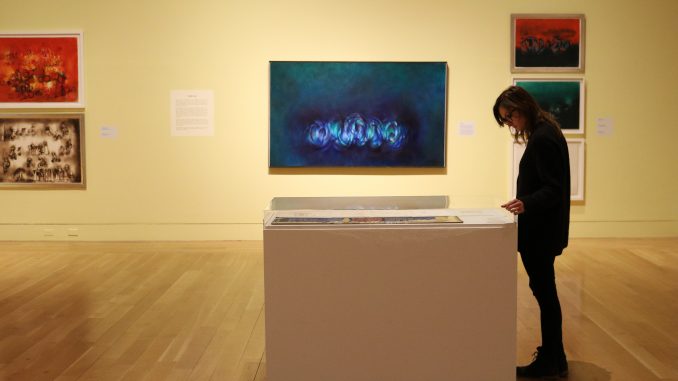
For Sonja Peterson-Lewis, a Temple African-American studies professor, Black History Month isn’t just about honoring the past—it’s also about building the future.
“The whole purpose of [Black History Month] was so people could build upon that, not just so that they could reflect, but so that they could project forward,” Peterson-Lewis said. “So the importance of Black history is the same as the importance of all history, so that people can know about the past, so that they can prepare and build for a better future.”
“If it’s going to achieve what Carter G. Woodson intended for it to achieve, it has to be for people’s everyday lives,” she added. “People feel the responsibility for adding to it, not just learning it.”
Hannah Wallace, a senior African American Studies major, raised a similar issue.
“Black History Month is not really the month we think it is,” she said. “Originally, when the month came out, [people] were supposed to study Black history all year long. And then the point of Black History Month was to culminate what we learned.”
Wallace is an assistant archivist at the Charles L. Blockson Afro-American Collection, which compiles more than 500,000 items on the history and culture of African Americans. The Blockson Collection plans to hold events for Black History Month, including a discussion about the experiences of black men on Feb. 18, related to the recently released book, “Question Bridge: Black Males in America.”
But Wallace said these events are year-round.
“I think with it being Black History Month, we’re putting it forward as Black History Month, but we usually do events,” she said.
Robert Cozzolino, one of the curators for “Procession,” an exhibition at the Pennsylvania Academy of Fine Arts showcasing the artwork of Harlem-based black artist and activist Norman Lewis, echoed Wallace’s sentiments.
“I would prefer a world where Black history, women’s history, is integrated into all we do as a society and culture so that it isn’t cordoned off for a 30-day period,” Cozzolino said. “As a curator, I seek integration and interaction. I would like to see an art world where children visiting the museum see the work and gradually realize that the installations are 60 to 40 artists of color, or women to men.”
Cozzolino also said PAFA has planned to exhibit Lewis’s work for many years.
“PAFA has specialized in exhibitions that represent artists who have been marginalized or fell through the cracks,” he said. “Lewis is certainly one of those artists. So while the show happens to be on during Black History Month, it was motivated by many other reasons.”
Atomic City Comics on South Street near 7th launched an art exhibition on Afrofuturism the first Friday of this month. Joe Turner, co-owner and curator, said he shows Black artists throughout the year instead of confining those shows within a month.
Turner said he understands the marketing aspect and giving people something easier to connect with, but it’s still “strange.”
“If I have an art gallery show every month, there’s going to be a place for anyone’s Black experience, and experience in general,” he said.
Turner said Afrofuturism doesn’t have a fixed definition, but is “a way to examine historical events and the possibility of the future through the filter of Afrocentricity or African diaspora experience.”
“In truth, Afrofuturism is bigger and less monolithic than any definition that can be given,” Turner said. “The concept of what’s possible for the future has less to do with artistic visualization, it has more to do with interpreting your own experience and what you would like to see from the possible fictional future, what’s possible in publishing, or what’s possible in real life.”
Wallace added that the future is critical in continuing to celebrate Black history and people.
“We have to keep the conversation going so it’s not supposed to be just this month,” she said. “Definitely celebrate Black history all year round. Never bring it down to one month.”
Iman Sultan can be reached at iman.sultan@temple.edu.


Be the first to comment